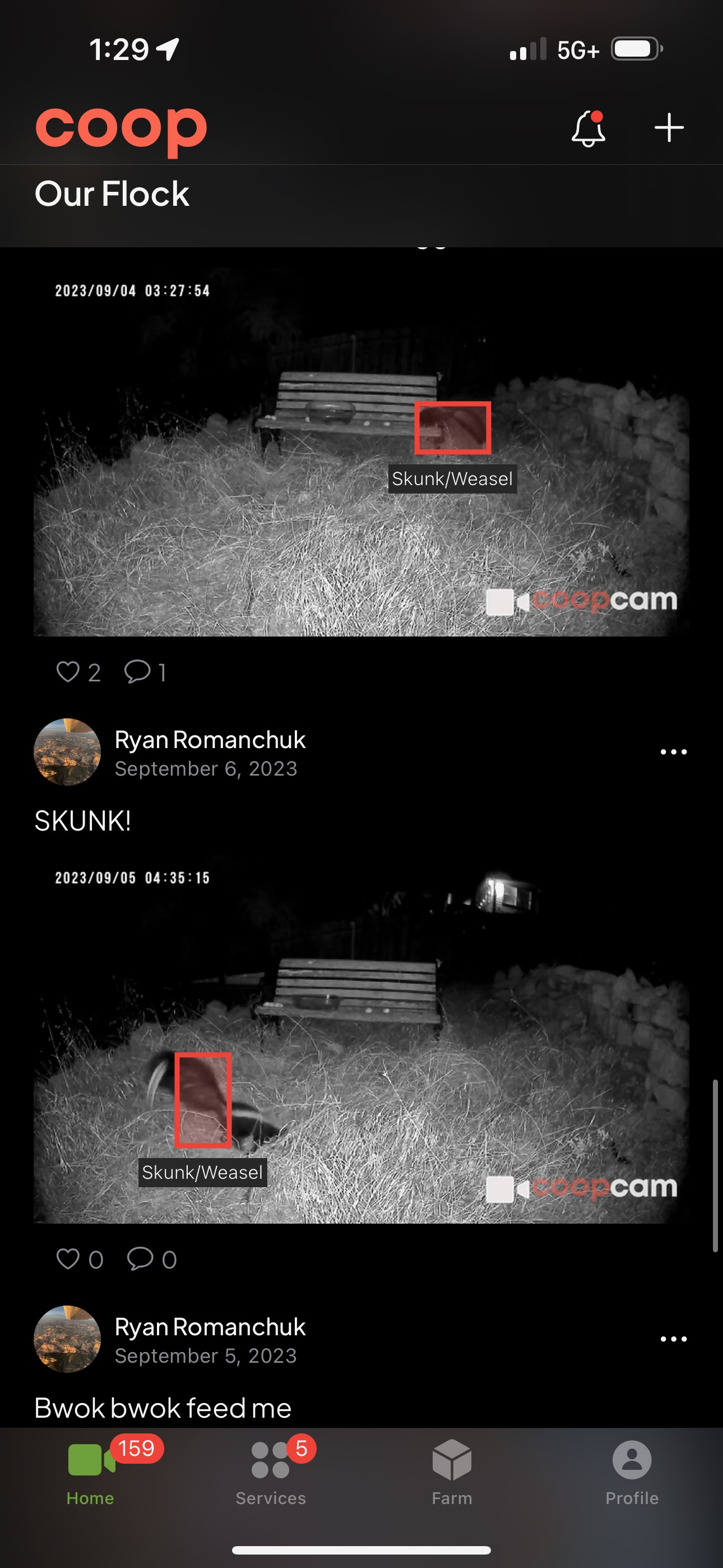A pair of Texan entrepreneurs and childhood best friends are looking to take down Big Poultry – and maybe help save the world a little bit in the process. Look out, Colonel Sanders. Watch your back, Misters Perdue and Tyson. There’s a new chicken king in town.
This is the first in a regular series of articles exploring smart tech that exists to make your life easier. Read them all here.
“We’ve probably put 10,000+ hours into designing this chicken coop, which is hilarious,” AJ Forsythe admitted recently. He co-founded Coop along with Jordan Barnes, who’s also Coop CMO – Chicken Marketing Officer. The pair aims to use technology to transform one of the quainter things American families do: raise chickens.
Today, between 10 and 15 million Americans raise backyard poultry for eggs, approximately 4% percent of the 330 million or so of us. The goal is to get the number to 20%, Forsythe says, and the path goes straight through your locally grown salad.
We talk a lot internally about ‘chicken curious’ people
AJ Forsythe, Coop Co-Founder
“We talk a lot internally about ‘chicken curious,’ people who have been wanting to [raise chickens] but don’t know where to start,” Forsythe told TechRadar. They often begin by growing lettuce or tomatoes, Barnes adds. That veggie patch in your backyard, the carrots and parsely and whatnot? That’s like the gateway drug to chickens.
Sure, changing the industrial food chain is a big, hairy, audacious goal. Eggs are big business, and farming isn't for everyone. But everyone’s likely seen a video or heard a story about the terrors of industrial-scale chicken farming; this is a space ripe for change. And Barnes is clearly up for the challenge.
“Tyson Chicken has already blocked me on Linkedin because I troll them so hard,” she told me.

The Tech: How smart is Coop?
The company’s first product is Coop, a charming home for 4 to 6 chickens with shockingly sophisticated chicken technology. Two battery-powered cameras (solar power coming) within the Coop monitor the birds and eggs and guard against predators, thanks to machine learning. That includes AI-based predator detection using "a curated, chicken-specific dataset boasting over 7 million images," daily routine automations, sound recognition, and more.
The security cameras at my house can’t tell the difference between deliveries and deer; Coop can identify individual chickens and log their behavior. Astounding. And that's partly because of audio detection, Barnes notes, a feature Coop calls Cluck Talk.
"There are seven decibels of clucks that chickens emit," she explains, ranging from hungry and scared to happy, predator, and "broody." Coop's CTO created "a convolutional neural network fine-tuned for audio" that converts those clucks into real-time language.
No, really.
It's not just about hawk alerts, but detecting nuances in their vocalizations to understand hunger, moods, and overall well-being, she explains.

Even the company’s URL is cool: smart.coop.farm.
“I’ve always wanted to do the intersection of smart home IoT meets backyard agriculture. If we can do technology that seems effortless on the front end, how can we enable people that are not raising chickens to do so?”
It all started in Chinatown, in LA, where as a Cal Poly student, Forsythe stumbled across a flock of chickens for sale in a market. He rescued four, brought them in a cardboard box via Amtrak back to his dorm room, and a lifetime fascination began.
“I built my first chicken coop from a dresser I found on Craigslist,” Forsythe said. Flash forward a decade and a half: His latest company has entered full-scale production and has eyes (and beaks?) on the future.
“We’ve infused 15 years of chicken-owning into this, which sounds absolutely insane, but if you’re going to change a market, which we humbly think we can, you have to think about everything,” said Barnes.
So look out, Big Poultry. Your future plans might just have been scrambled.




0 Comments
If you have any doubts, Please let me know